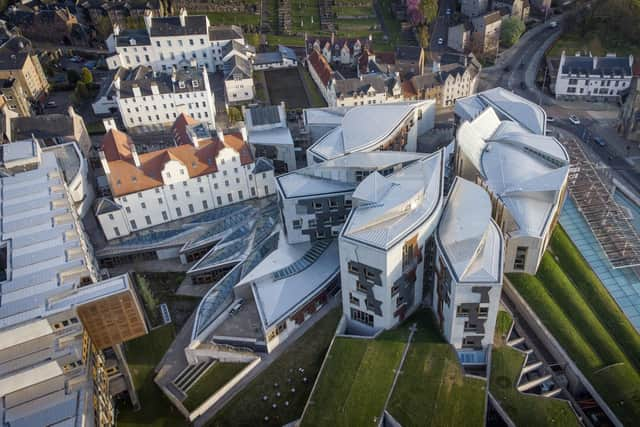Scottish Government criticised for hundreds of car trips amid ScotRail 'shambles' - with ministers 'ferried around on taxpayer pound'
The rail operator slashed hundreds of journeys when it introduced a temporary timetable – a move brought in to try to prevent short-notice cancellations.
Figures obtained by Labour show that since the reduced timetable was introduced on May 23 until June 18, a total of 439 journeys were made in ministerial vehicles.
Advertisement
Hide AdAdvertisement
Hide AdThat is more than double the total of 214 recorded over the same 27-day period in 2021, Labour said. According to the date on the first day of the temporary timetable, nine journeys were made in ministerial vehicles. On June 1, ministers made a total of 44 separate trips using the Scottish Government fleet.
The figures prompted Labour to claim SNP and Green ministers were being “ferried around on the taxpayer pound” while ordinary commuters were having to cope with “cancellations, delays and chaos” on the railways.
Scottish Labour transport spokesperson Neil Bibby, who recently slammed six-figure pay packets for ScotRail executives post-nationalisation, said: “It’s little wonder SNP ministers aren’t treating the ScotRail shambles with the urgency needed when it simply doesn’t affect them.
“When workers are saddled with cancellations, delays and chaos, they are happily getting ferried around on the taxpayer pound. Scotland’s out-of-touch ministers are enjoying a two-tier transport system, while rail passengers deal with a second-rate service.


“The SNP-Green government need to come back down to earth – and see the damage these cuts are doing to people, communities and our economy.”
Essential
A Scottish Government spokesperson said: “Travel is an essential part of official government business, and with the recent easing of Covid restrictions more ministerial business has been conducted in person.
"The Government Car Service provides a secure environment to conduct government business while travelling to and from ministerial engagements. We continually look for ways to ensure the Government Car Service is delivered in the most cost-effective manner, offering the best deal to the taxpayer.
“As part of our commitment to decarbonise our fleet, we have increased investment in fully electric and ultra-low-emitting electric vehicles, which now make up 66 per cent of the overall current fleet and 100 per cent of the current Government Car Service fleet. We are committed to phasing out petrol and diesel cars from the public sector fleet by 2025, and replacing fossil-fuelled vehicles with plug-in or fully electric vehicles where appropriate.”
Comments
Want to join the conversation? Please or to comment on this article.
